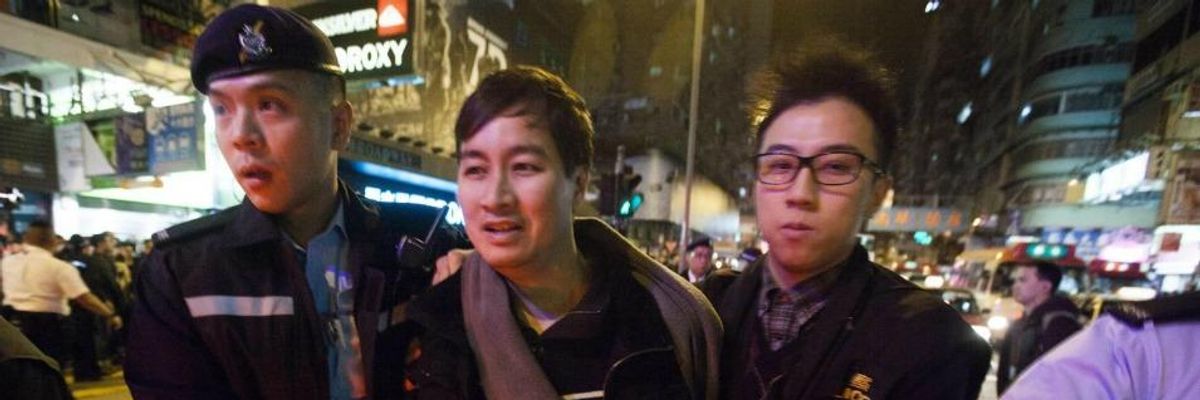Police used pepper spray and batons to break up a resurgent pro-democracy action in Hong Kong Wednesday night, as activists returned to central protest sites in Mong Kok.
According to a police statement, 12 arrests were made, allegedly on a range of charges including assault on officers and "failing to produce proof of identity."
Protests demanding universal suffrage for Hong Kong voters began in September, after the Chinese government withdrew a promise to allow free elections in 2017. Throughout months of
actions, Beijing maintained its position that candidates for the semi-autonomous city's Chief Executive must be screened and approved by a pro-establishment panel.
The youth-led movement, which grew to take on tens of thousands of participants at its peak, saw protesters camping out in Mong Kok and other central areas of Hong Kong for months. Protesters marched through streets, blockaded main intersections and police headquarters, and disrupted political events to demand true democratic elections.
After images emerged in September that showed protesters using umbrellas to defend their camps from riot police, the movement came to be known colloquially as the Umbrella Revolution.
Activists promised to return when their final protest site was shut down in early December.
"This is not the end," one protester, Martin Lee, said at the time. "It is the continuation of the beginning."

